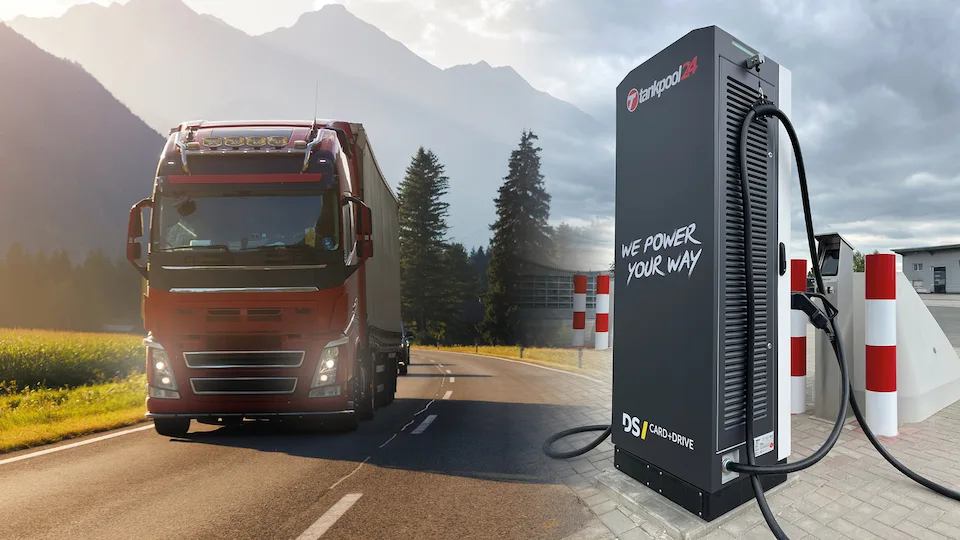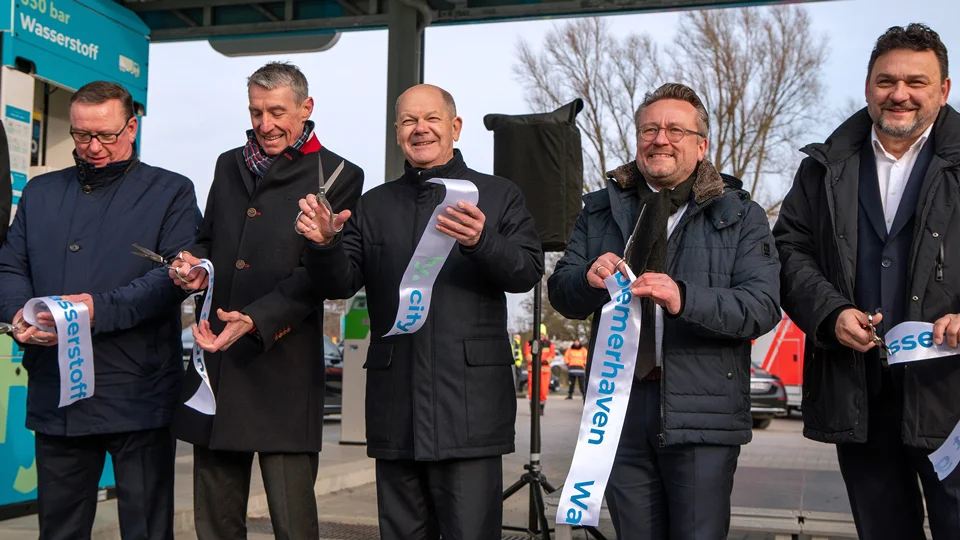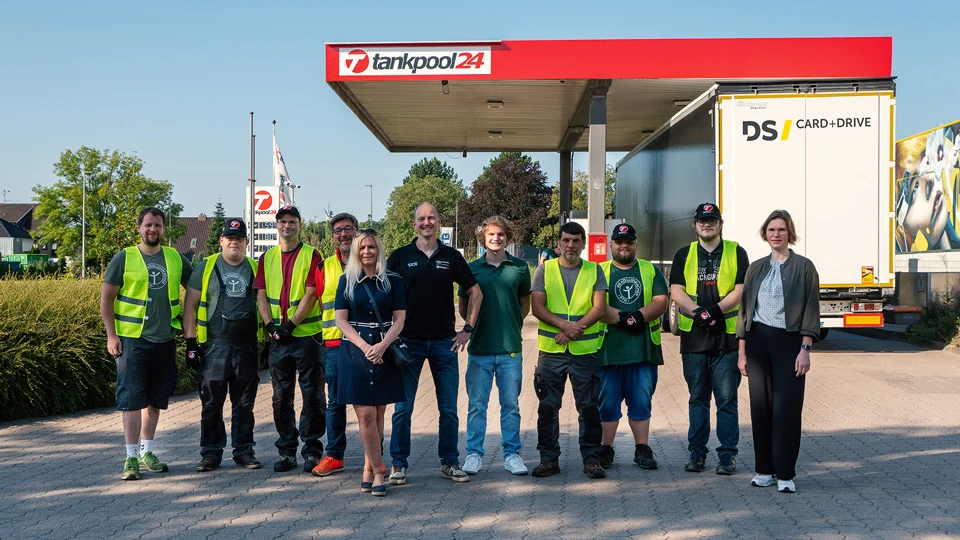Two subsidiaries of the DS Group have successfully launched a forward-looking project: The first fast-charging hub for electric trucks within the group has gone into operation at the Rieste site in the Niedersachsenpark – a key milestone on the road to climate-friendly logistics.
A Strong Team: DS card + drive and ENERGU
The project was realized with DS card + drive as the operator and ENERGU as the implementation partner. ENERGU provides customized solutions for sustainable charging infrastructure and smart energy management. In this project, the company handled all groundwork, installation, connection, commissioning, operation, and maintenance of the facility.
DS card + drive, a member of the Europe-wide tankpool24 network, supplies the logistics industry with around-the-clock access to fuel via automated fueling stations across Europe. Together, the two companies developed a cutting-edge charging solution tailored to the needs of electric truck fleets:
- 2 fast-charging stations from manufacturer Nidec
- 4 charging points, each offering up to 400 kW
- CCS2 connectors, compatible with common e-truck models
- Charging time: approx. 45 minutes – aligned with the legally required driver break
- Range per charge: up to 600 km
A key benefit for logistics companies: billing is seamlessly integrated into the tankpool24 network and is handled conveniently via NFC fuel card – efficient, secure, and hassle-free.
Developing high-performance charging infrastructure for electric trucks is essential for transforming logistics. With our new site in Rieste, we’re making a strong statement – technologically advanced and future-ready.
Timo Czerwanski, Managing Director DS card + drive GmbH
Future-Ready: A Strategically Located Site
The charging hub in Rieste is located just 500 meters from a planned new motorway exit, making it ideally situated for customers who are already using electric vehicles or preparing to transition. Nearby, a logistics provider and an international fashion brand have operations.
Photovoltaic panels installed on the rooftops of adjacent buildings are set to be integrated into the overall energy concept. Plans also include the use of a high-capacity energy storage system to efficiently utilize self-generated electricity. This would reduce reliance on the grid and lower operational costs in the long term.
A Scania study [1] indicates that electric trucks using sustainably produced batteries and green electricity can reduce greenhouse gas emissions by well over 80%. Despite higher emissions and resource use during battery production, current electric trucks can become more climate-friendly than diesel-powered ones within one to two years of operation.
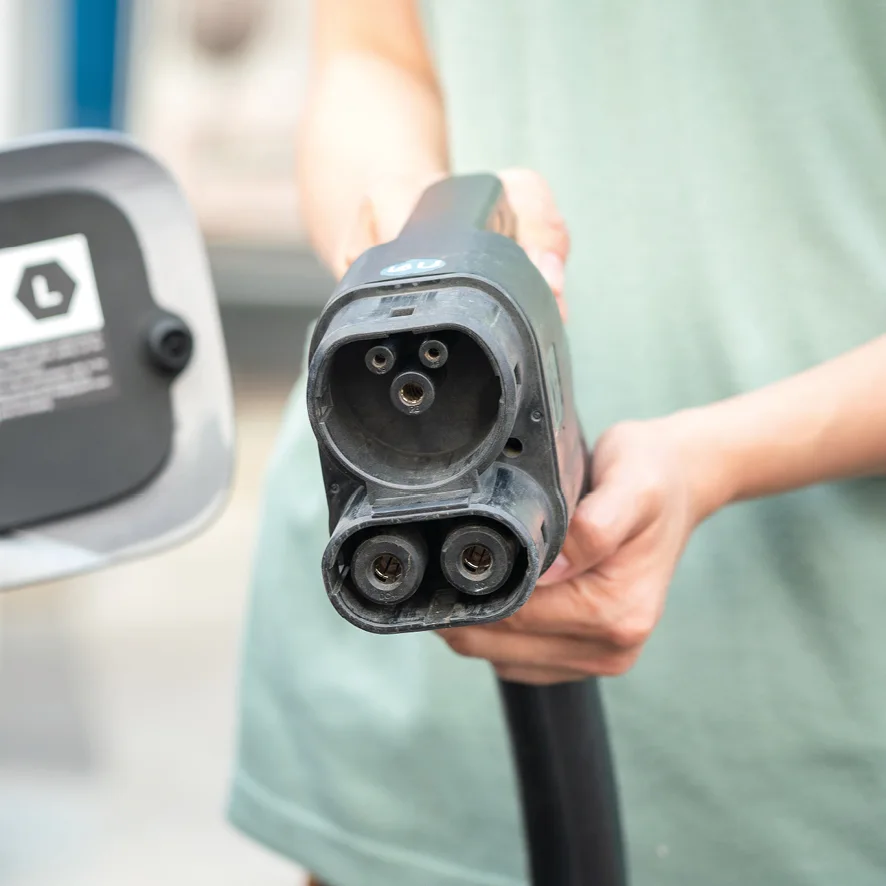
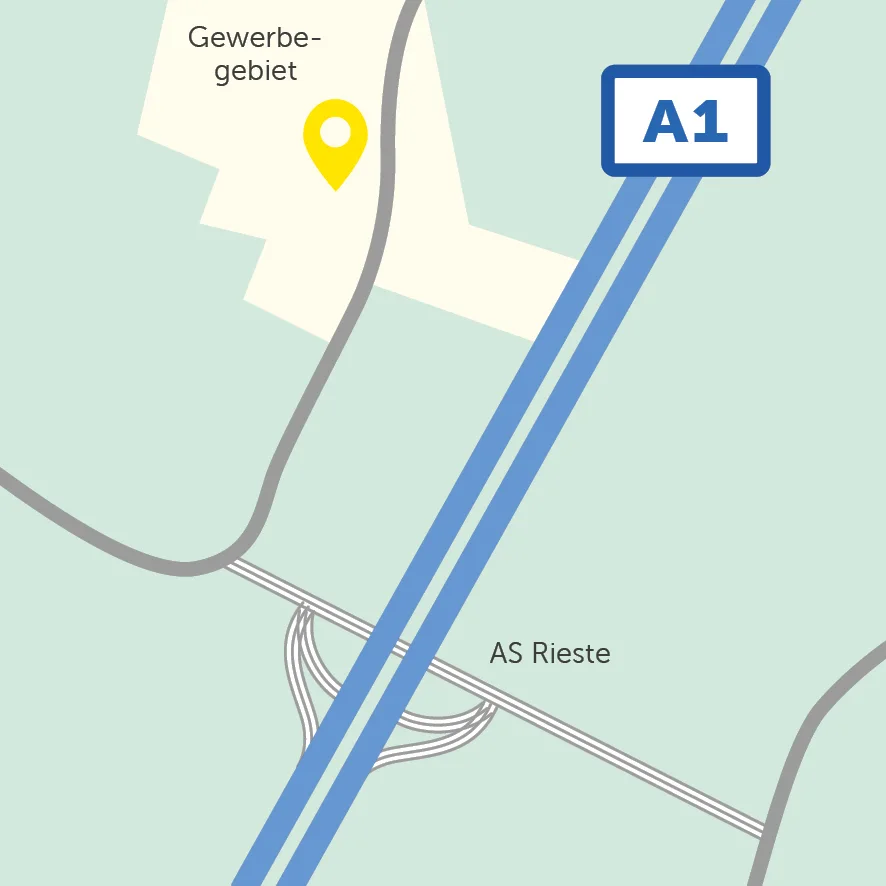
Benefits of Electric Trucks
86 %
GHG reduction possible
with green energy
63 %
GHG reduction with
projected 2030 EU energy mix
83-97 %
Reduction in particulate matter,
ozone formation, and soil acidification
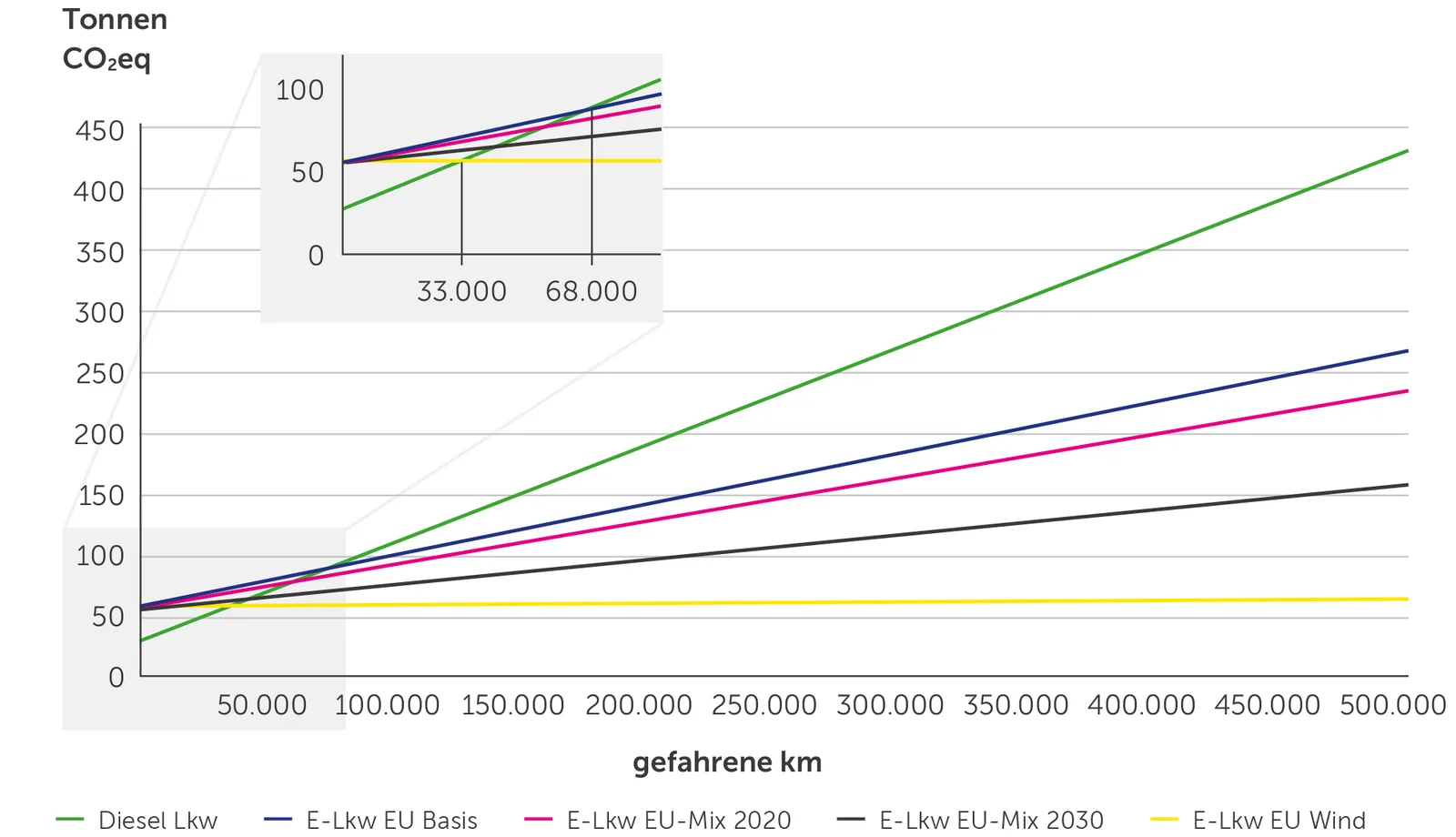
Looking Ahead: The Future of Logistics
Demand for low-emission transport solutions is growing – driven both by environmental awareness and by increasing pressure from major customers who are making low-carbon supply chains a requirement for doing business. By expanding its charging infrastructure, the Diersch & Schröder Group is laying the foundation for this transition.
While electric trucks still make up a small portion of the market, that’s expected to change rapidly. A study [2] by PwC Strategy& projects that by 2030, more than 1 in 5 trucks worldwide could be battery-electric. By 2040, electric trucks could make up as much as 90% of the global market. A robust charging infrastructure is essential for this transformation. Early adopters stand to gain a significant competitive edge.
Powering electric trucks takes more than just installing charging points. We rely on well-designed, intelligent systems with high power output and future integration of renewable energy – just like here in Rieste.
DS Group Leads the Way
With the commissioning of its first fast-charging hub for electric trucks, the DS Group is sending a clear signal for the shift toward sustainable mobility in the logistics sector – and is already planning further charging points.
Soruces:
[1] Ökobilanz von Verteilerfahrzeugen, Scania, 03.06.2025 www.scania.com/content/dam/www/market/ch/emobility/pdf/BEVvsDiesel-Eco-Bilanz-DE.pdf
[2] Truck Study 2024 | Strategy&, 03.06.2025 www.strategyand.pwc.com/de/en/industries/transport/truck-study.html
